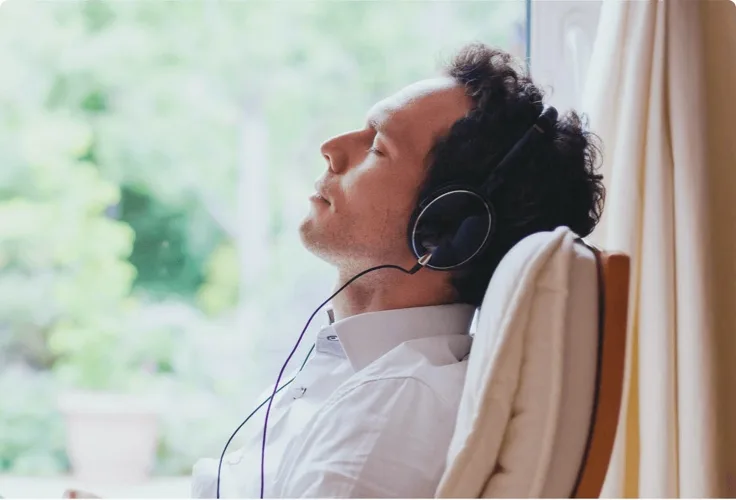
Sleep hygiene to fight COVID-19
COVID-19 · Apr 1, 2020
While Canadians are seeing some heartening signs that social distancing is having an impact on flattening the curve of COVID-19, this is not yet the time to let down our guard. As we see other countries struggle under the burden of this pandemic, we should heighten our resolve to protect each other, especially frontline healthcare professionals, first responders who protect us every day, and those most vulnerable to this virus, including the elderly and those with chronic illnesses.
We’re all facing varying degrees of stress right now, whether it’s because we feel trapped at home, the pressure of stretched finances, feeling a lack of control, or worry about our own safety or that of our loved ones. Chronic stress impacts our physical and mental health and often rears its ugly head by negatively affecting sleep.
I don’t need to tell most adults how important sleep is. While sleep is necessary to feel refreshed, its benefits extend far beyond that. Good sleep is essential to maintain physical and mental health, but it’s also critical for learning and retaining new information, to protect our brain from dementia and much more.
You have insomnia if you’re struggling to get to sleep quickly, you’re awakening through the night and you find it difficult to get back to sleep, or you’re awakening too early in the morning. Insomnia can turn any bedroom into a house of horrors, where being unable to sleep becomes an all-consuming concern. Just worrying that they won’t sleep is enough to keep some people from sleeping.
The following guidelines are essential first steps for managing insomnia and key to achieving good sleep hygiene:
1. No caffeine after noon
If you’re very sensitive to caffeine, switch to non-caffeinated coffee or tea (note: green tea contains caffeine). Caffeine hangs around in the bloodstream for 12 hours or longer. Highly caffeinated drinks are very popular, and they are notorious for disrupting sleep. Be careful with all brown soft drinks they contain caffeine and they’re really bad for you anyway, so it’s a good time to quit drinking pop! While you’re at it, consider quitting smoking – it also impairs sleep.
2. No alcohol
Alcohol really does a number on normal sleep architecture – the phases of sleep everyone goes through every night. If you want to fix chronically bad sleep, drop the alcohol. Once the sleep problem is fixed, limit alcohol as much as possible and don’t drink too close to bedtime. Alcohol’s negative impact on sleep tends to worsen with age.
3. No screen time within an hour of bedtime
This includes TV, cell phone and computer screens. What else can you do with your time? Lower the lights, have a bath, read an enjoyable novel, have a pleasant conversation with someone you live with or meditate. While you’re leaving your screens behind for the night, be sure to turn off all unnecessary beeps and notifications from your devices. If possible, keep your phone in another room while you sleep.
4. Sleep in a cool, dark, quiet room
Warm, loud, well-lit rooms are made for being awake. Your body is programmed to sleep when it’s dark, so you can encourage that rhythm by dimming the lights, or switching to a soft bedside lamp. Also, your body temperature naturally drops as you drift into sleep, so cooling down your bedroom can jump start the process and make it easier to doze off.
5. Exercise regularly but not too close to bedtime
Exercise, even mild to moderate intensity, such as a brisk walk, reduces fatigue and also improves the quality and depth of sleep. But, if you don’t have enough time between exercise and bedtime, you might feel too revved up to settle into a good night’s rest. Schedule exercise with enough time for your body to relax before bed.
6. Keep a regular bedtime and wake-up time, even on weekends
As a serious nap lover, it pains me to say this, but if you’re struggling with your sleep, you should avoid naps – they are the enemy of insomnia sufferers. However, if it feels impossible to get by without a little shut-eye, a nap should not extend beyond 20 to 30 minutes, and it should happen as early in the day as possible – set your alarm!
7. Change the topic
If you wake up and start worrying in the middle of the night, it’s important to move your thoughts on to another topic, which is difficult but not impossible. My personal favourite: try to think of the U.S. states, in alphabetical order. There is actually research showing this can help! If you don’t know more than 20 states, try alphabetizing Canadian capital cities or cities in your province. Making yourself focus on a long, boring list helps shift your mind away from worry and get you back to sleep.
Take good care of yourself and those you love. Keep up the social distancing. We’ll get through this together.
Dr. Diane
More information about insomnia and mental health is available in my book, This is Depression: A Comprehensive Guide For Anyone Who Wants to Understand Depression


